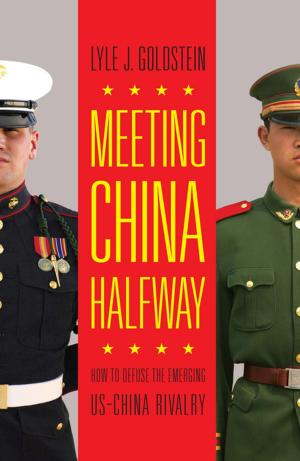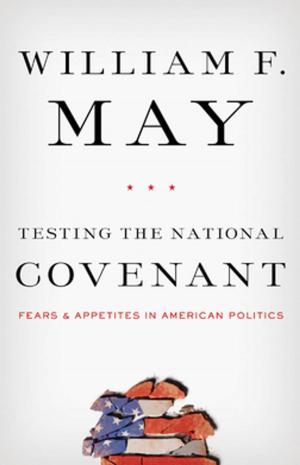The National Security Enterprise
Navigating the Labyrinth
Nonfiction, Social & Cultural Studies, Political Science, International, International Security, International Relations, History| Author: | ISBN: | 9781589017504 | |
| Publisher: | Georgetown University Press | Publication: | January 1, 2011 |
| Imprint: | Georgetown University Press | Language: | English |
| Author: | |
| ISBN: | 9781589017504 |
| Publisher: | Georgetown University Press |
| Publication: | January 1, 2011 |
| Imprint: | Georgetown University Press |
| Language: | English |
Recent breakdowns in American national security have exposed the weaknesses of the nation’s vast overlapping security and foreign policy bureaucracy and the often dysfunctional interagency process. In the literature of national security studies, however, surprisingly little attention is given to the specific dynamics or underlying organizational cultures that often drive the bureaucratic politics of U.S. security policy.
The National Security Enterprise offers a broad overview and analysis of the many government agencies involved in national security issues, the interagency process, Congressional checks and balances, and the influence of private sector organizations. The chapters cover the National Security Council, the Departments of Defense and State, the Office of the Director of National Intelligence, the Central Intelligence Agency, the Federal Bureau of Investigation, the Department of Homeland Security, and the Office of Management and Budget. The book also focuses on the roles of Congress, the Supreme Court, and outside players in the national security process like the media, think tanks, and lobbyists. Each chapter details the organizational culture and personality of these institutions so that readers can better understand the mindsets that drive these organizations and their roles in the policy process.
Many of the contributors to this volume are long-time practitioners who have spent most of their careers working for these organizations. As such, they offer unique insights into how diplomats, military officers, civilian analysts, spies, and law enforcement officials are distinct breeds of policymakers and political actors. To illustrate how different agencies can behave in the face of a common challenge, contributors reflect in detail on their respective agency’s behavior during the Iraq War.
This impressive volume is suitable for academic studies at both the undergraduate and graduate level; ideal for U.S. government, military, and national security training programs; and useful for practitioners and specialists in national security studies.
Recent breakdowns in American national security have exposed the weaknesses of the nation’s vast overlapping security and foreign policy bureaucracy and the often dysfunctional interagency process. In the literature of national security studies, however, surprisingly little attention is given to the specific dynamics or underlying organizational cultures that often drive the bureaucratic politics of U.S. security policy.
The National Security Enterprise offers a broad overview and analysis of the many government agencies involved in national security issues, the interagency process, Congressional checks and balances, and the influence of private sector organizations. The chapters cover the National Security Council, the Departments of Defense and State, the Office of the Director of National Intelligence, the Central Intelligence Agency, the Federal Bureau of Investigation, the Department of Homeland Security, and the Office of Management and Budget. The book also focuses on the roles of Congress, the Supreme Court, and outside players in the national security process like the media, think tanks, and lobbyists. Each chapter details the organizational culture and personality of these institutions so that readers can better understand the mindsets that drive these organizations and their roles in the policy process.
Many of the contributors to this volume are long-time practitioners who have spent most of their careers working for these organizations. As such, they offer unique insights into how diplomats, military officers, civilian analysts, spies, and law enforcement officials are distinct breeds of policymakers and political actors. To illustrate how different agencies can behave in the face of a common challenge, contributors reflect in detail on their respective agency’s behavior during the Iraq War.
This impressive volume is suitable for academic studies at both the undergraduate and graduate level; ideal for U.S. government, military, and national security training programs; and useful for practitioners and specialists in national security studies.















